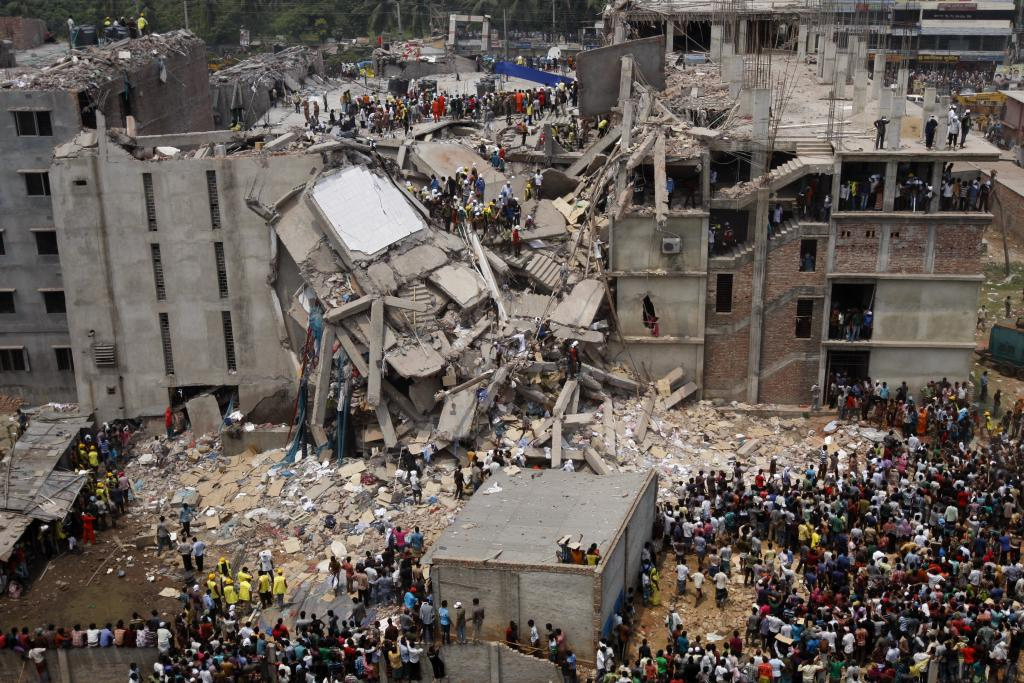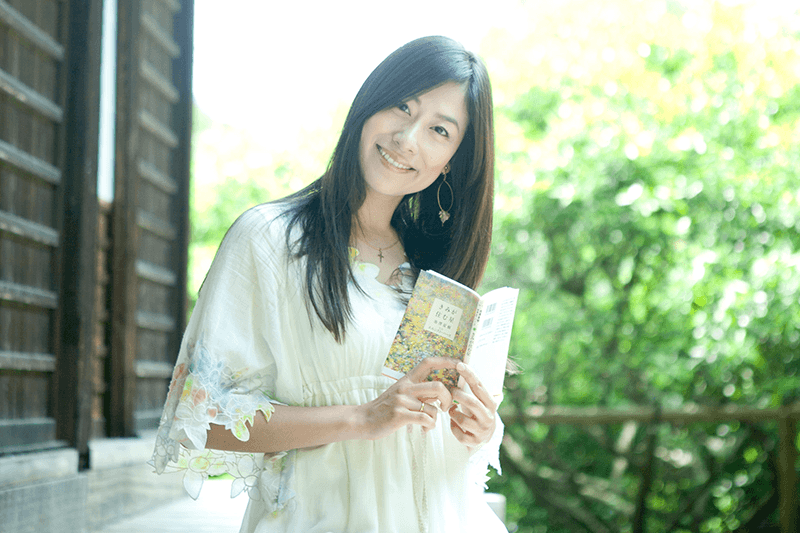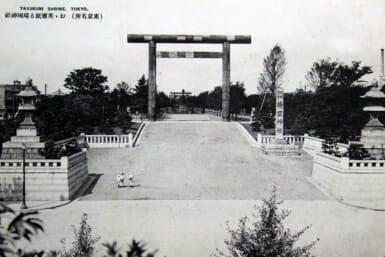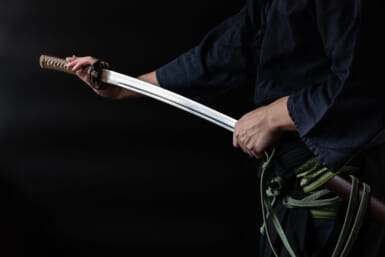Rika Sueyoshi, TV presenter and founder of the Ethical Association in Tokyo, on why it’s essential we start to change the way we shop.
Television presenter Rika Sueyoshi arrives for our interview in a homespun silk dress from Bangladesh that was made using natural products by artisans who were paid a fair wage. Her jewelry comes from Hasuna, a company that ensures laborers receive a share of the profits by procuring their gems directly from mines.
The business card she hands over was created from banana stems that would usually have been thrown away by farmers.
From her bag to her shoes, the 39-year-old always considers where a product has come from before buying. It’s a far cry from her younger days when she would throw out clothes almost as quickly as she’d purchase them. A lover of high-end brands and bargains, all that mattered was that the clothes looked good and the price was right. That changed around 12 years ago while reporting as a mystery hunter for the TBS program “Discovery of the World’s Mysteries.”
“Of course I’d read a lot about inequalities around the globe and the ways in which we were damaging the planet; however, living in Tokyo it’s easy to feel detached from these problems. The turning point came when I climbed Mt. Kilimanjaro in 2004. I was really looking forward to reaching the top so I could see the Furtwangler Glacier, yet when I got there I was struck by how small it was [over the last 100 years around 85 percent of its ice cover has disappeared]. Local villages that I visited rely on it for drinking water, crop irrigation, and power through hydroelectric production. It was the first time for me to get a real glimpse of the damage that global warming is having, not just on plants and wildlife, but on people’s livelihoods. I immediately wanted to convey what I’d seen to people in Japan.”
The US-born celebrity immersed herself in campaigns focusing on environmental concerns and fair trade. Last year she formed the Ethical Association which arranges various events such as fashion shows, markets and clothing swaps where people can exchange unwanted items. The organization pushes companies to be more diligent in regards to supply chain management (SCM) and encourages them to undertake initiatives that promote greater environmental responsibility. Raising awareness of ethical consumerism, particularly amongst young people, is another key component of the group’s objectives.
“It’s important that the youth of today realize their daily shopping habits can have a big impact on society,” Sueyoshi says. “This is something that isn’t really taught at schools so I’m constantly lobbying the minister of education to try and change that as well as running seminars myself. The purpose isn’t to preach about what people should and shouldn’t be buying, but to encourage consumers to ask questions when they shop. Of course I understand the appeal of purchasing fashionable items at rock-bottom prices, yet do you think that skirt could really be sold for ¥500 if it’d been produced ethically?”

The collapse of the Rana Plaza Building – where manufacturing for many fast-fashion labels was conducted – killed 1,130 people, and could have been avoided if safety precautions had been taken
The worst culprits according to Sueyoshi are fast fashion labels such as Forever 21, H&M, Uniqlo and Zara. These companies have completely transformed the fashion industry, churning out new trends on a weekly basis. This has led to a culture of disposability. Garments are now so cheap people don’t care about getting rid of them. According to statistics from Japan’s Ministry of Economy, Trade and Industry, for every 10 kilograms of clothes bought here, nine kilograms are thrown away.
“We’re simply buying too much (around 80 billion items are purchased annually, a 400 percent increase from 20 years ago), and that leads to an incredible amount of textile waste,” Sueyoshi says. “I realize purchasing organic fair trade cotton is expensive and not everyone can do it, especially in the current economic climate, but if you were to get something from say Patagonia or People Tree rather than H&M then it’ll last you much longer and you’d be less likely to go out and splurge on other clothes.”
Fast fashion clothing is generally low on quality and bad for the environment because of the toxic chemicals found in the fabrics, yet as it looks good and is cheap, demand remains high. This has put extra pressure on factories in developing countries to produce stock quickly, and employees are subsequently forced to work long hours in dangerous and unhealthy conditions for low wages.
The collapse of the Rana Plaza factory in Dhaka three years ago highlighted how appalling the situation had become. The tragedy, which killed 1,130 people and injured over 2,500, could have been avoided if proper precautions had been taken. Just five months earlier, 117 people died as a result of a fire at the Tazreen factory in the same city. Following these incidents, the Accord on Fire and Building Safety in Bangladesh was signed by hundreds of apparel brands including Inditex (Zara’s parent company), Fast Retailing (Uniqlo), and H&M, but not Forever 21. While safety checks have become more rigorous and greater transparency is being shown as a result of the agreement, progress has been painfully slow. Earlier this year, a Bangladesh factory that made clothes for H&M and JC Penny caught fire. Fortunately it occurred before most of the workers had started their shifts. On September 10, an explosion at a packaging factory near Dhaka killed at least 21; the blast has been attributed to improperly stored flammable chemicals.
If customers were more aware of incidents like this, perhaps they would change their shopping habits. Last year as part of an experiment in Alexanderplatz, Berlin, a brightly colored vending machine sold T-shirts for just €2 each. When customers inserted their money, a video played showing shocking scenes from a textile factory where a girl named Manisha along with other women and children were working without a break for as little as 13 cents an hour. Given the choice of donating or purchasing, around 90 percent chose the former (you can see the clip below).
“I think most consumers want to be more responsible in the choices they make, but without a constant flow of information it’s difficult,” Sueyoshi says. “Take unagi (freshwater eel) or pacific Bluefin tuna for example. Many Japanese people eat these products without realizing they are [on the IUCN red list for] threatened species. There’s not much about this on the news, so unless you’re actively searching for that kind of story you probably won’t read about it.”
There’s also the question of how much we want to know. Some prefer to remain ignorant, especially when tucking into a mouth-watering dish or going on a shopping spree. We all rely on computers and cellphones, yet how many of us care about where the material in these products comes from? In January, a report by Amnesty International revealed that kids as young as seven were working in treacherous conditions in the Democratic Republic of Congo for a dollar a day to mine cobalt, a key element used in lithium-ion batteries. Many high-profile companies including Apple, Samsung and Microsoft failed to carry out basic checks to ensure the minerals used in their devices were not mined by children. So should we, therefore, feel guilty about buying items from these multinational corporations?
Amnesty International fundraising coordinator Yoko Doi doesn’t think so. She does, however, believe we should be more vocal in our condemnation, pressuring these companies to change their ways. “We can show them there’s a real demand from consumers for ethical smartphones where human rights abuses haven’t occurred. It’s time for the big electronic brands to use their considerable resources and leverage to improve the situation for workers at the start of the chain. The mining of cobalt provides employment and is important for DRC’s economy, but that certainly doesn’t justify the exploitation of children who complained of being frequently ill and in pain from heavy lifting.”
The likes of Sony and Apple have since released statements promising to address the issue, while Samsung via its Sustainability Report pledged to redouble the company’s “efforts to find ways to resolve these challenges.” It’s encouraging to hear, but without Amnesty’s report nothing would have been done. In the future, Sueyoshi would like to see corporations, governments and individuals taking greater responsibility when it comes to business ethics.
“One hundred people taking a step each is more valuable than a hundred steps by one person,” she says. “We can’t just leave it up to NGOs to solve the world’s problems; everyone has the power to bring about change.”
If you’d like to get involved with a quick ethical consumerism project with the rooms trade show that takes place next week, visit the following link: www.tokyoweekender.com/2016/09/pop-up-organic-convenience-store-seeks-foreign-staffers









